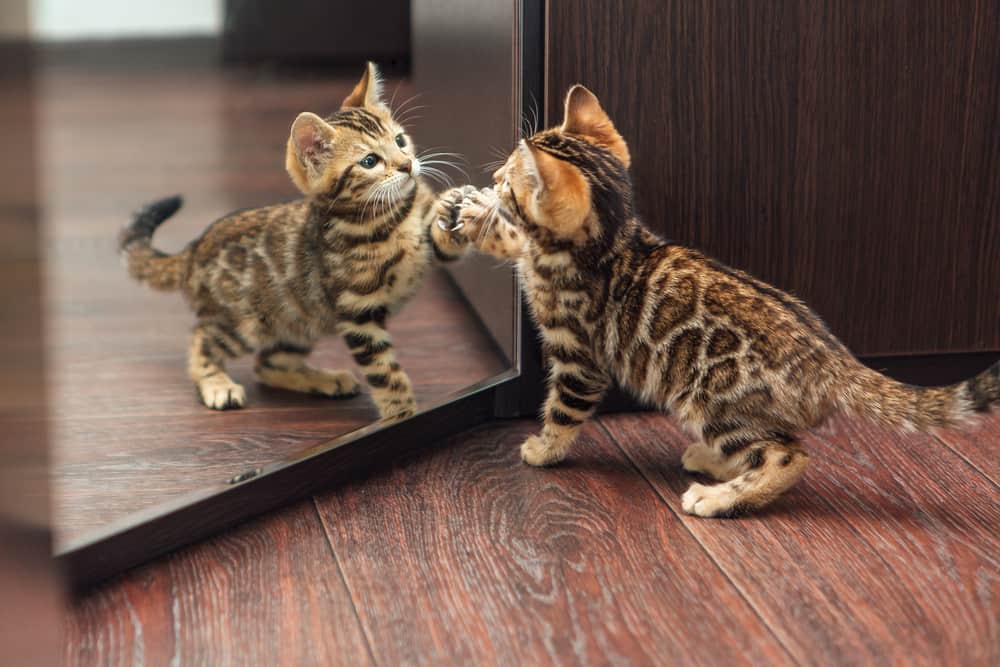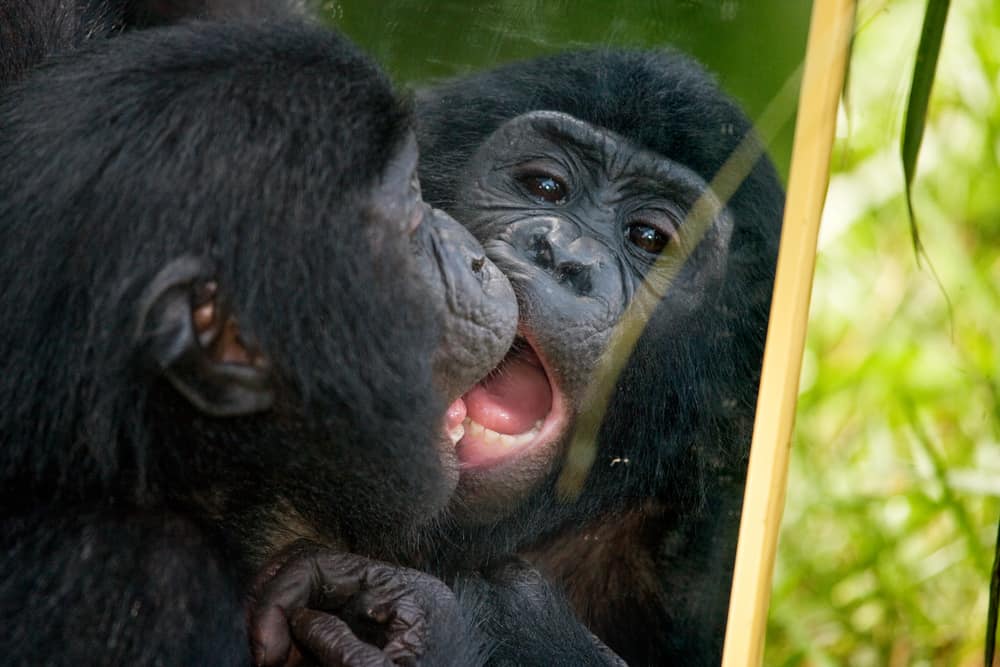You’re walking through a familiar, wooded area. Your ears are pricked up, but there is nothing too worrisome to be heard, only some insects whirring and birds chirping. You sniff the remnants of a scent of a predator who passed through this area some time ago. Suddenly, and without your senses having picked up on it, you catch a glimpse of a familiar creature. You pause. How are you unable to pick up their scent, and where did they go? You backtrack. There! Who are you? Are you mimicking my movements? Are you a threat?
Introduction

We can only imagine what goes on in an animal’s mind when they encounter themselves in a mirror. Most species seem to treat the reflection as a threat or even a possible mating partner. Unsurprisingly, scientists have been studying the reactions of animals placed in front of mirrors for decades. In fact, a concept called “mirror self-recognition” has emerged as a result thereof.
Mirror Self-Recognition

The first study analyzing whether animals could recognize themselves in a mirror was published in the 1970s by psychologist, Gordon Gallup Jr. Gallup’s test was simple: an animal is anesthetized, their face is marked with non-irritating red dye, and then they are placed in front of a mirror to observe whether they could use the mirror to investigate the red mark on their own body.
Several animal species have passed the “Mirror Self-Recognition (MSR) test,” including chimpanzees, dolphins, orcas, and magpies, among a few others. Species that have reportedly failed this test include several monkey species, giant pandas, and sea lions. Humans pass the MSR test as young as 18 months old.
Self-Awareness

The argument has been made that mirror self-recognition is related to self-awareness, or, at the very least, implies that animals possess a mental image of what they look like. Researchers use the MSR test to better understand animal consciousness and cognitive abilities.
However, results from the MSR test have been far from consistent. One study found that less than half of the number of chimpanzees tested passed the test. Interestingly, gorillas, who are relatively closely genetically related to humans, have not yet been found to pass the MSR test.
Criticism For The MSR Test

This test is based on animals’ visual stimuli. Therefore, it might not be a fair assessment for animals who rely more heavily on senses like smell and hearing. Additionally, some species may not recognize the mark as significant or might respond aggressively to their mirror image, thereby preventing their consideration for what the image might actually represent.
Another thing to consider is that animals may not have the same concept of “self” that humans have. Self-awareness is not a binary trait (yes or no trait); thus, failing the mirror test does not necessarily mean an animal lacks self-awareness.
Conclusion

As humans, we constantly have to navigate our being a singular entity in an infinite universe, grappling with thoughts and emotions, often uncontrollable. Perhaps we hope that we don’t suffer the burden of self-recognition all alone, and that maybe animals know something that we don’t; something that we can, hopefully, one day learn.
You may also like:
Join our Forum for free today!

- Glow-in-the-Dark Sharks & Other Fascinating Bioluminescent Fish - July 10, 2024
- Why Flamingos Are Totally Hardcore - July 3, 2024
- Nuclear Tech to Combat Poaching: Radioactive Rhino Horns - July 2, 2024

